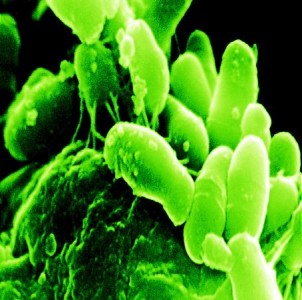Rant 55: Predictions for 2010s
Happy New Year, possums!
Why not start things off right with an awesome Stumptuous 2010 calendar?? HELL YEAH!!
OK, Stumplady is putting on her prognosticatin’ pants and giving youse the Predictions for the Decade.
1. You will fail at your New Year’s Resolutions this year — and every year — unless you figure out the real problem and focus on the process, not the product.
Why are you out of shape? Why are you poorly nourished?
It’s not “willpower” — it’s the current structures and systems of your life.
Your relationship with your body mirrors your relationship with the other domains of your existence. Your body reflects your current values and priorities as well as your environment — social and physical.
- Fix your surroundings and relationships.
- Bump fitness and nutrition up the list of values and priorities.
- Find the limiting factors that are holding you back, and remove them.
- Examine the structure of your physical environment and daily routines to find the elements that sabotage you (or help you).
- Get away from soul-sucking people, things, and situations. Go towards people, things, and situations that bring you joy and give you energy.
- Question your underlying assumptions about how this whole project works and why it matters.
Not saying you have to solve it all, but if you don’t address the root cause of whatever’s bothering you, you’re doomed to fail.
Another fitness writer talked about a woman he knew who planned lavish, indulgent, junk-food meals while she was “on a diet”. In other words, this is a temporary fix, and then things will be magically different and I can engage in poor choices with impunity. Nuh-uh. It doesn’t work like that.
Be brave.
Get some big garbage bags — real or metaphysical — and start throwing shit out, whether that’s energy vampire people who don’t support you, crap “food” that poisons you, or assumptions and mindsets that are fundamentally self destructive.
Question everything until you peel away all those onion layers to find out why you are in the situation you are in.
Hint: it’s not because you eat carbs.
2. Everything will be two diseases.
My theory is that in fact all diseases are the same disease, and there are really only two kinds.
- diseases caused by a foreign pathogen or external accident — parasites, viruses, a safe falling out of a window on to your head, etc.
- autoimmune diseases, where your body attacks itself
Dig this shit: in the last decade-ish, we have discovered that the following health problems (and by no means is this an exhaustive list) have autoimmune features:
- cancer
- heart and cardiovascular diseases
- diabetes
- gastric esophageal reflux disease (GERD), aka heartburn
- digestive problems, including inflammatory bowel, celiac, leaky gut
- autism
- mental illness
- neurodegenerative disorders, e.g. Alzheimer’s, Parkinson’s
- obesity
- skin disorders such as rosacea, eczema, and psoriasis as well as acne vulgaris
My theory is that the autoimmune list above signifies that everything is the same disease.
And often, disease #1 can become disease #2.
For example, a viral or bacterial infection can trigger a cascade of events where the immune system starts beating up on itself. For instance, this is how death often occurs in respiratory infections — it ain’t the virus or bacteria that gets you, it’s your body’s response that makes you drown in your own lung butter.
Or, an injury can trigger chronic pain that does not disappear when the physical damage does. (Back pain sufferers, you know what I’m talking about. Your spine’s tissues have long forgotten about the actual owchie but your brain is hoarding the memory of that pain like a cat lady hoards old newspapers.) Speaking of that, we will become more insightful and sensitive about dealing with pain, and regard it as a complex mental-emotional-physical event.
As my judo teacher likes to say, It’s all the same fucking throw. (Our class is somewhat… informal. Kano wept.)
In other words, the fundamental principles and features apply — and if you have one thing, you often have other things too, whether you see them or not.
The body is a system — a very complex, self-regulating, sensitive system.
Think about it. Let’s imagine your body as a neighbourhood.
It has roads and railways — let’s call those blood vessels and our GI tract. It has a communications system — let’s call the electrical lines nerves and the postal system our endocrine system. The plumbing is our lymphatic system. The houses are our organs.
What happens if a road gets blocked by construction?
- There’s a big snarl-up at the point of blockage
- Everything gets diverted
- Regular systems can’t work as well — the mail carrier has to change the route; messages may not get delivered as well
- Digging under the road screws up the plumbing
- The people living nearby can’t sleep because of the construction noise and horn honking; they bitch to their neighbours and write crabby letters to the local paper
- Etc.
One little road blockage affects the entire neighbourhood.
- Do you really think your liver doesn’t notice if your heart is clogging up with tiny chicken wings and beer bubbles?
- Do you really think your blood vessels all over your body don’t care if there’s a nasty chemical running amok in the plasma?
- Do you really think you can sneak that shit past your digestive system while it’s looking the other way?
No, my friends, the body is a very chatty, gossipy, omniscient being. It knows when we’re sleeping. It knows when we’re awake. It knows when we’ve been bad or good etc. It’s like Santa and God together.
3. We’re going to realize that stress literally kills us.
 Sure, we know stress is bad. But did you know that physical, emotional, and mental stress can actually rearrange your DNA?
Sure, we know stress is bad. But did you know that physical, emotional, and mental stress can actually rearrange your DNA?
Problem is, modern life is more stressful than ever before, and it’s showing no signs of abating.
A global high-tech world means that along with the usual woes that have always plagued humanity (food, shelter, getting out of bed in the morning, getting and maintaining sex, mean people with pointy objects and thundersticks, malevolent power-grubbing bosses, etc.), we have new ways to stimulate ourselves, to which our physiologies (see #6) have not yet adapted.
For example, chronobiology will show us how the natural cycles of life — daily and seasonal rhythms — can be disrupted by our current structures such as shift work, artificial daylight, etc. and how this affects our metabolic health, including nutrition and exercise.
And multitasking just makes you worse at stuff. You think you can talk on your cellphone, read a map, juggle a coffee, and whip down the freeway, but you can’t. In fact, you’re doing badly at all of those things.
Speaking of coffee, your 4-venti-a-day habit is probably frying your adrenal glands.
Adrenal fatigue became the buzzphrase of the late 2000s. While it’s not yet recognized as an official disorder by the medical community, it makes sense that there’s a continuum between “total adrenal explosion” and “happy adrenals”, just like there are subclinical manifestations of several metabolic disorders.
Natural health practitioners are pointing out that just maybe all that stimulation isn’t so great. (See #10.)
In the next 10 years, we’ll start to see the long term effects of over-stimulation by chemicals. “Fat burner” supplement consumers, are you paying attention? Or are you too distracted by the xanthines slamming into your adenosine receptors?
4. Our tummies have brains.

Say hello to my leetle friends!
And boy are they pissed.
The GI tract, long ignored as a poop-filled garden hose, is getting its revenge. The enteric nervous system and the rich, diverse microbial colonies of our gut may in fact be responsible for much of our immune system and subconscious sensory activity.
Celiac disease now affects 1 in 100 people. Food intolerances are on the rise — whether this represents a higher rate of diagnosis or incidence is hard to know, but I’m guessing a bit of both.
We’ll start understanding the havoc that we’ve wreaked on our tummies with the Western diet in a more profound way, and autoimmunity of the gut will become understood as a fundamental component in a variety of other health conditions. (See #2 above.)
And by the way, the liver will replace the heart as the disease organ du jour. We focused a lot on heart disease starting in the 1980s. However, disordered liver function underlies an immense number of metabolic diseases, and in a sense it’s the canary in the coal mine. Put your money on the liver as a key player, while the heart’s disease celebrity career is going the way of Vanilla Ice’s.
Gut instinct, indeed.
5. The lipid hypothesis will go the way of Jazzercise.
You’d be tempted to think that Gary Taubes was the first to throw the bullshit flag on the twin statements of “Dietary fat makes you fat” and “Dietary fat makes you diseased”. But in fact, scientists were figuring this out in the 1920s and 30s.
The lipid hypothesis — the idea that dietary fat makes us fat and sick, and that we can perceive this disease state by looking at lipoproteins, and that we should all live on statin drugs — will die. Statins will be the new Vioxx but we’ll only figure this out when we wonder why our muscle tissue is dissolving.
Saturated fat is not the enemy. Nor is dietary cholesterol. Humans evolved to eat this stuff. However, they did not evolve to eat high fructose corn syrup, Frappucinos, and Ho-Hos. (See #6.)
Viva pork belly and organ meats! (But make them organic and pasture-raised. See #7.)
6. Evolutionary biology will become a guiding force in helping us understand ourselves.
 We are, after all, animals. Our physiology is 10,000 years old or more, and we’re closer to yeasts than we’d like to admit.
We are, after all, animals. Our physiology is 10,000 years old or more, and we’re closer to yeasts than we’d like to admit.
Yeasts exposed to sugar age just like humans do. Less sugar = longer life.
Once we understand ourselves as hunter-gatherer hominids, a lot of stuff makes much more sense.
Our diseases (see #2) come largely from trying to do 21st century things with 10,000 year old bodies. (See #3.)
Epigenetics will become big news. We smugly thought we figured it out when we figured out DNA.
As usual, every time we say “Well, that’s the end of that question”, we find out we were wrong. (Why don’t we learn? Well, maybe arrogance and the desire for completion is also part of our DNA.)
And here, by the way, I don’t mean evolutionary pop-psychology of the type barfed up in mass media, e.g. “Men like to go in their cave” and “Women like potpourri because it reminds them of gathering berries”. I mean, like, real science with actual evidence and stuff. Pop-psych simplifies and stupidifies the world; real science makes it more complicated and interesting.
7. Farms will become both more and less personal.
Industrial conglomerates will continue to expand and dominate the food systems.
But a devoted and growing group of food fighters will continue to advocate for small farms, organic methods, and local food production and distribution systems.
There’ll be more chemical shit on the shelves, but consumers will also have better access to CSAs, pasture-raised meat, organic foods, and farmers.
People will start asking more inconvenient questions about where their food comes from, but unfortunately, food manufacturers will continue to distribute their nutritional napalm into new and vulnerable markets. (See #11.)

And then, things will just get weird.
8. Aging will continue to be a key focus for medical research.
The Boomers are shuffling into senescence, so there’ll be a lot of money thrown at research into age-related diseases.
We’ll come to realize that a lot of “normal” aging is simply disuse and neglect. We’ll realize that many chronic diseases are connected, and ultimately part of the same underlying phenomenon. (See #2.)
People will expect to stay active and sexy with a good quality of life. They will not go gently into that good night.
This will lead to some pretty awesome bionic replacements, major advances into understanding cellular damage, a plethora of invented medical conditions and “cures”, and us having to contemplate Hugh Hefner still gettin’ it on.
Unfortunately we won’t put as much attention into making sure kids don’t die early from inactivity and poor nutrition (see #9), and aren’t whacked out on drugs that fry their little brains (see #3 and #4).
9. Healthwise, the U.S. will implode.
Sorry guys, but no matter what happens with that healthcare plan, the Titanic has hit that iceberg and you’re rearranging deck chairs.
- An entire swath of generations is now obese and developing serious metabolic diseases.
- Those 45-odd million uninsured folks aren’t going to get better overnight.
- Children are walking around with type 2 diabetes and heart disease, stoned on Ritalin.
- A growing population of seniors and the working poor are going to food banks.
- Farmers are living in poverty, and much of the available cropland in fertile areas is drying up or saturated with chemicals.
- The food regulation and industry lobbying system means that manufacturers are allowed to produce and distribute utter garbage for the populus to consume (and then produce ridiculous offenses such as high-fructose corn syrup commercials); pharmaceutical companies can advertise their wares to all and sundry.
- The US scores poorly on many key indicators of overall health, such as infant mortality.
Between well-established social determinants of health such as the economic recession and unequal distribution of resources (see #3), the health-crushing geography of suburban life (and the housing crisis), atrocious food (see #7), the aging population (see #8), etc. your country is in big, big trouble.
I am always desperately saddened by the tales that Americans tell me of their healthcare system, and the delusions they hold about the rest of the world. (Death camps, people? Really?) I am still haunted by the boy who did not seek help for a broken wrist because he could not afford it.
Don’t worry, the rest of the world is catching up to you in many respects, but you’re leading the pack, and you’re the only affluent industrialized country without a centrally administered public health care system. Congratulations. You’re killing your citizens.
10. The idea of “___ resistance” will emerge.
We already know about insulin resistance, which is the inability of our glucose transport and storage systems to work properly when they’re constantly flooded with insulin and glucose from a prolonged high-carbohydrate diet.
We’re learning about leptin resistance, which occurs in obese people whose bodies no longer respond well to the effects of the hormone leptin.
We’ll start to realize that continual hormone imbalance is bad news. Like parents tuning out a screaming toddler, our body downregulates systems in order to accommodate receptors that are overloaded.
11. Nutraceuticals will be big news, big business, and often a big pile of bullshit.
We’ll learn, as Hippocrates instructed, to make our food our medicine and our medicine our food.
Except instead of interpreting this dictum correctly — that we should eat well and treat each meal as an opportunity to nourish and repair our bodies via Nature’s gifts in whole foods — most folks will simply turn to chemical-laden “vitamin waters” and acrylamide-laden French fries with “cancer fighting” chemicals, helpfully produced by large corporations looking to disburse more low-cost garbage into the collective gullets of the populace.
This is like hitting yourself in the head with a hammer, but saying “It’s OK, because the hammer came with an ice pack and a roll of bandages!”
If a manufactured product advertises its health benefits (low fat! low carb! high in calcium! trans-fat/cholesterol free! balances your Q zone! aligns your cosmic vibrations!), 99.9% of the time you should not eat it.

For one thing, label claims themselves can be very misleading. (More examples)
For another, label claims may have absolutely nothing to do with the real problem. I ate a whole lot of high-sugar, low-fat Fig Newtons and Twizzlers when I was low-fatting my way up to 50 lbs overweight. Sure, they were actually low-fat. But in that case, so is a sugar cube.
Oh, and I keep rooting for curcumin (a compound found in turmeric) as Supplement of the Decade. I think this is the decade!
Over to you, 2010s! To quote Principal Skinner, “Prove me wrong, children! Prove me wrong!”
